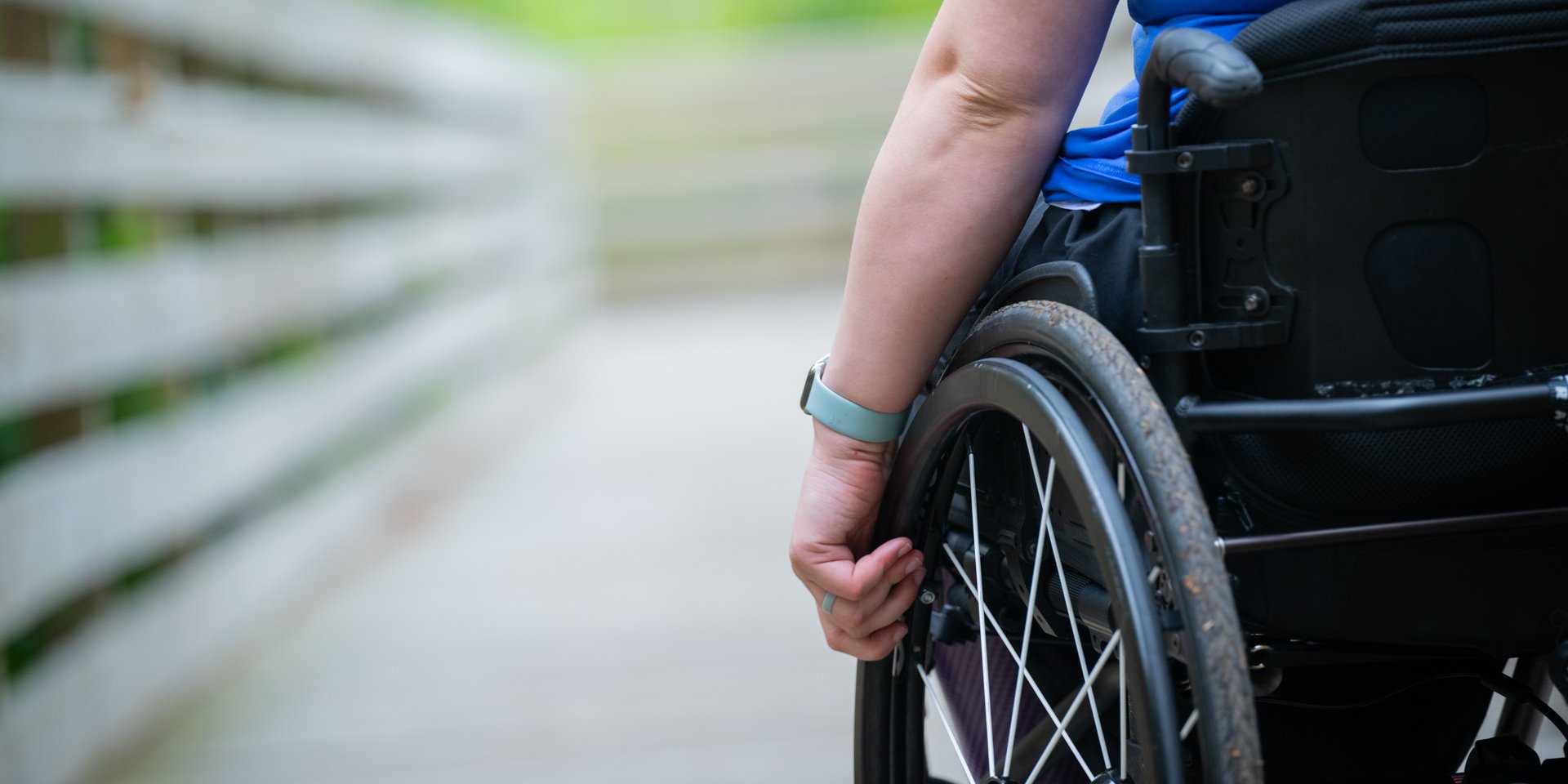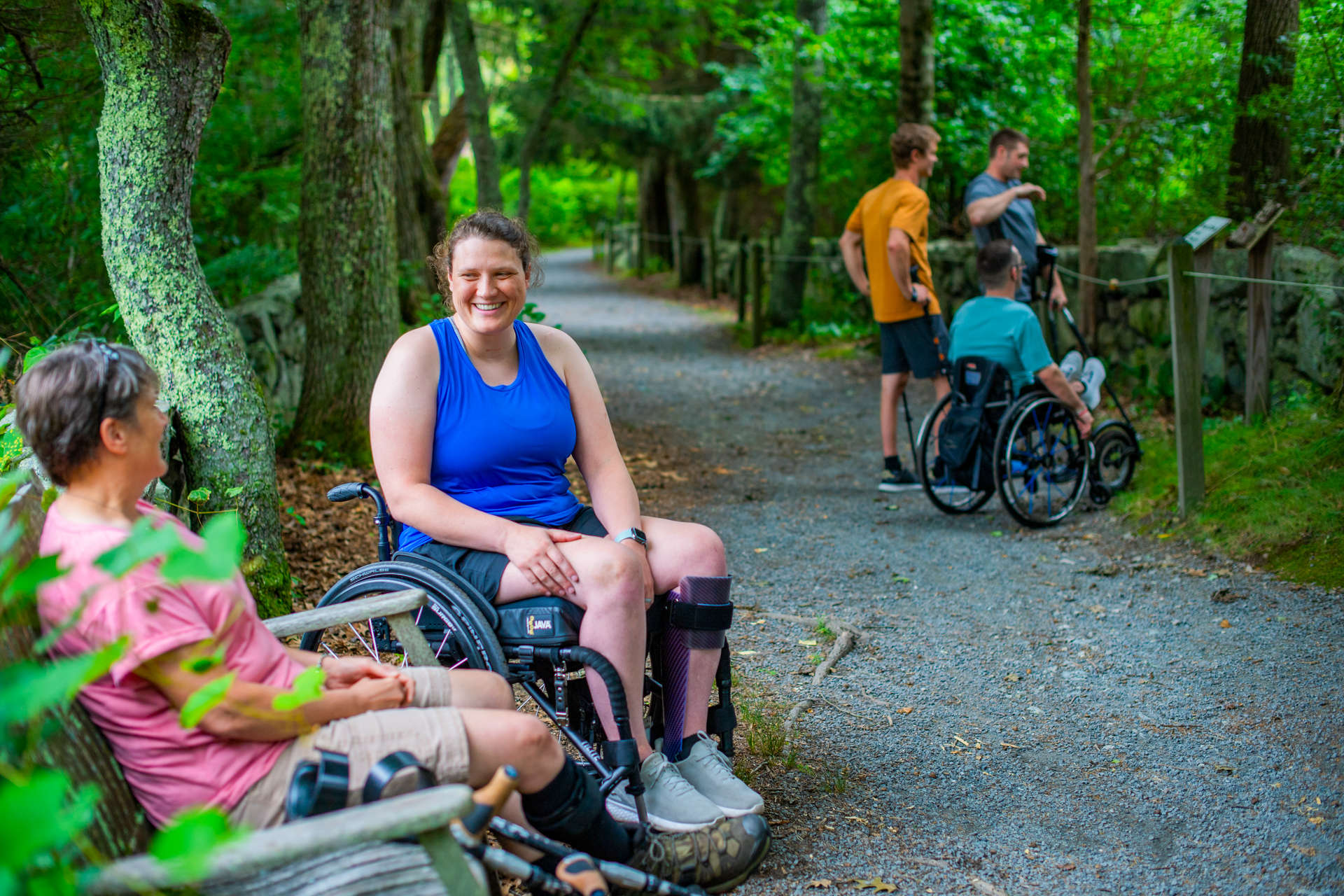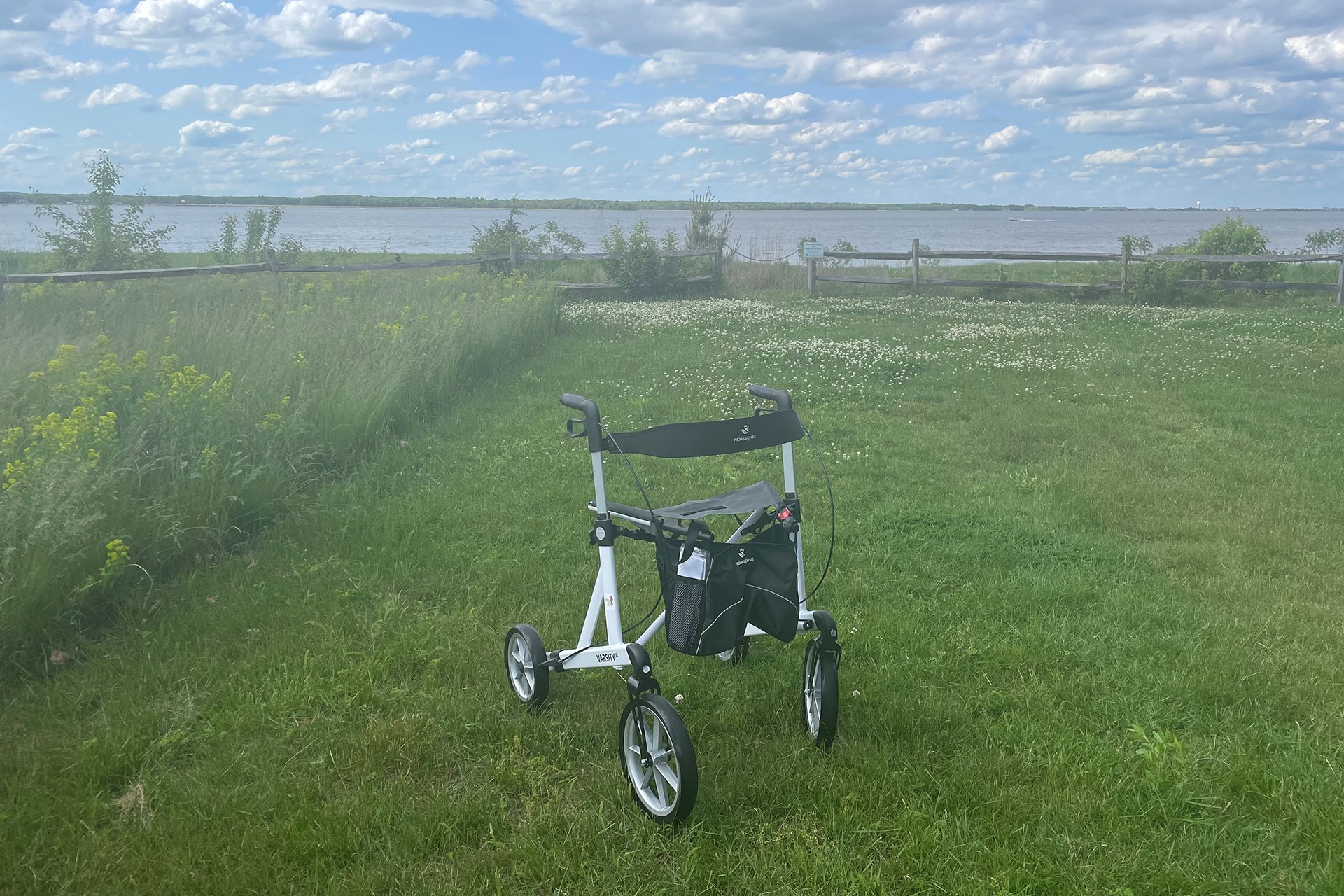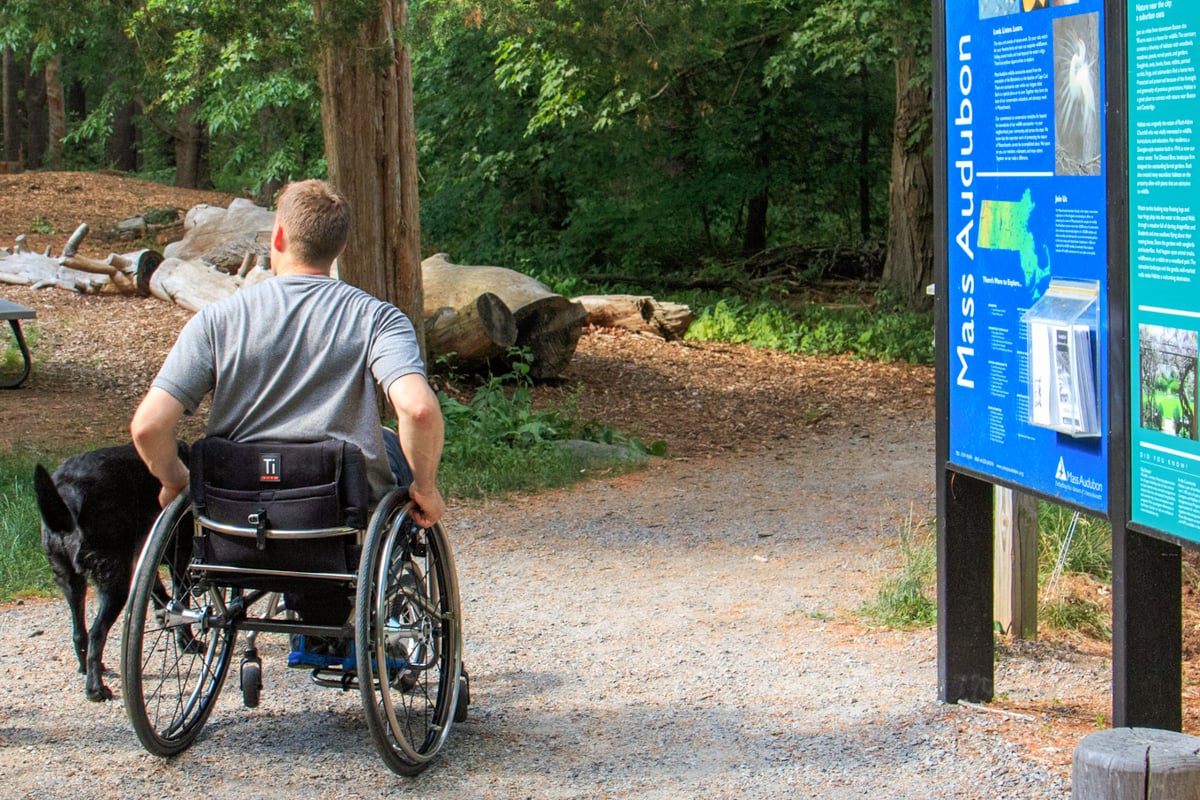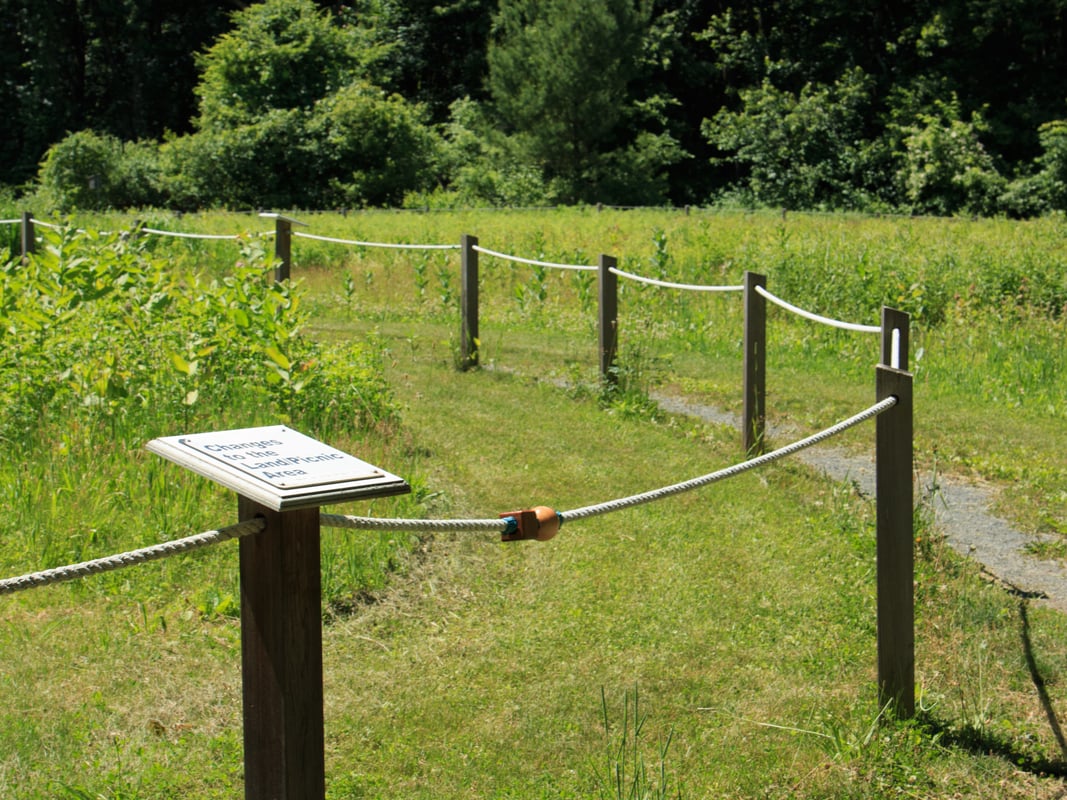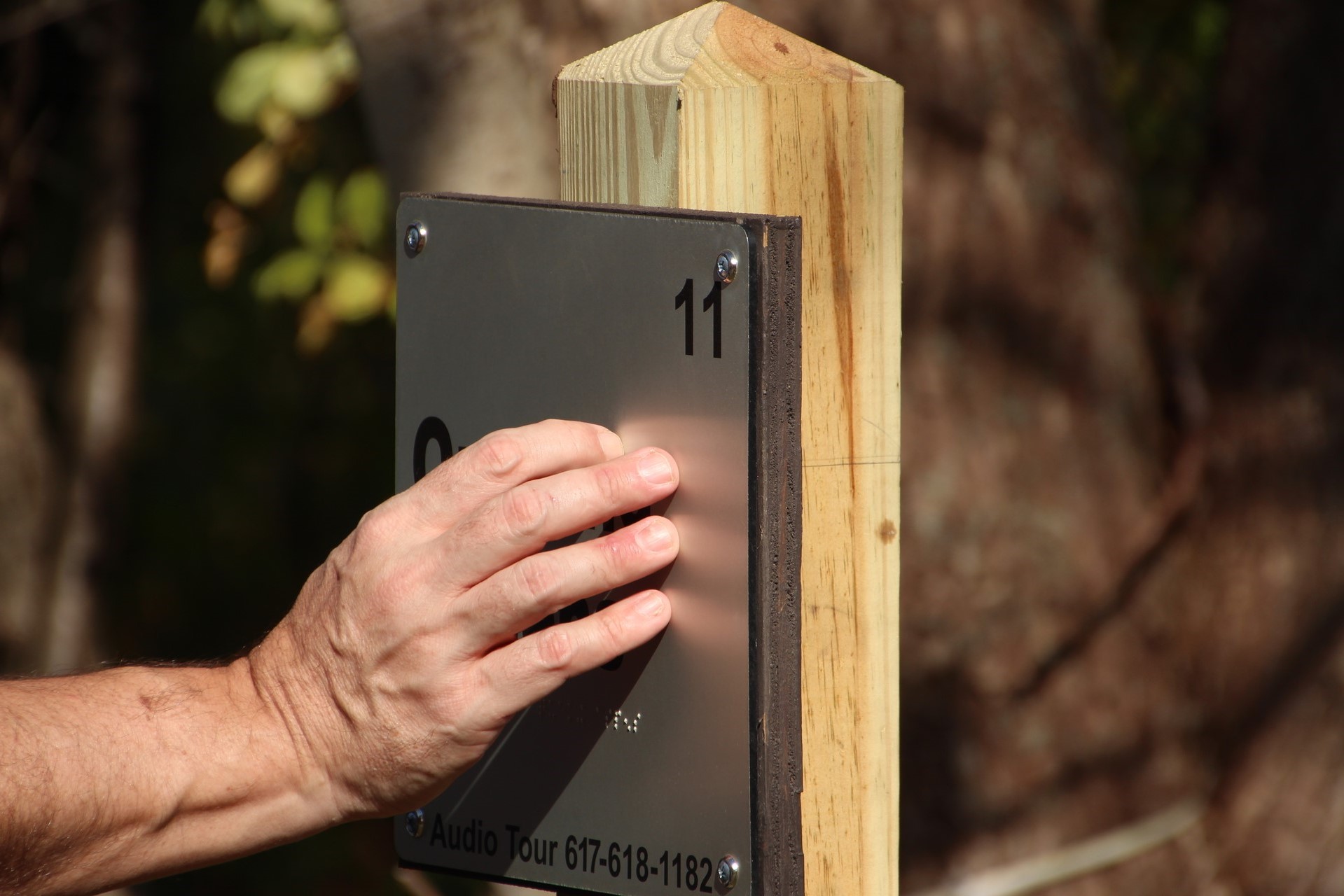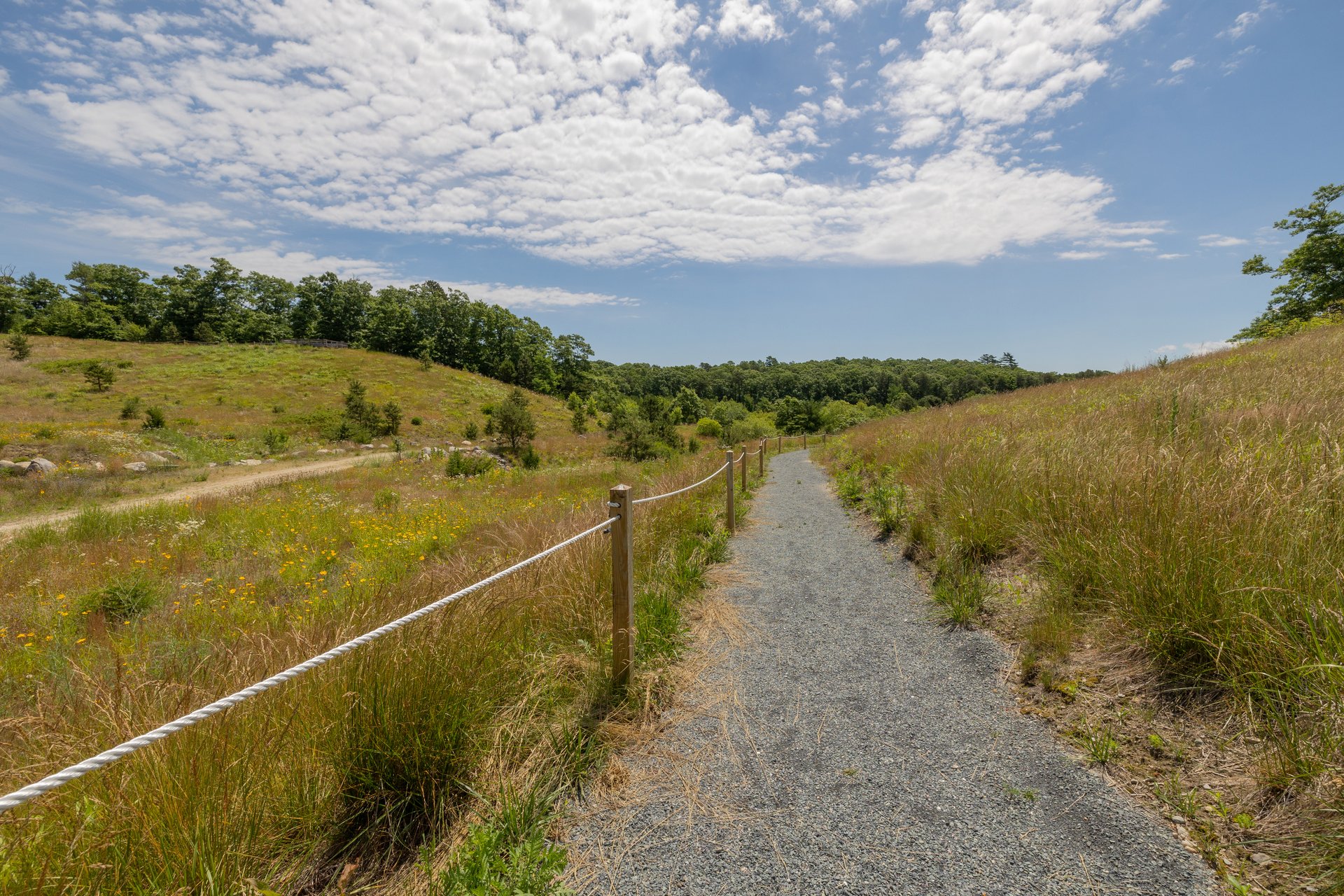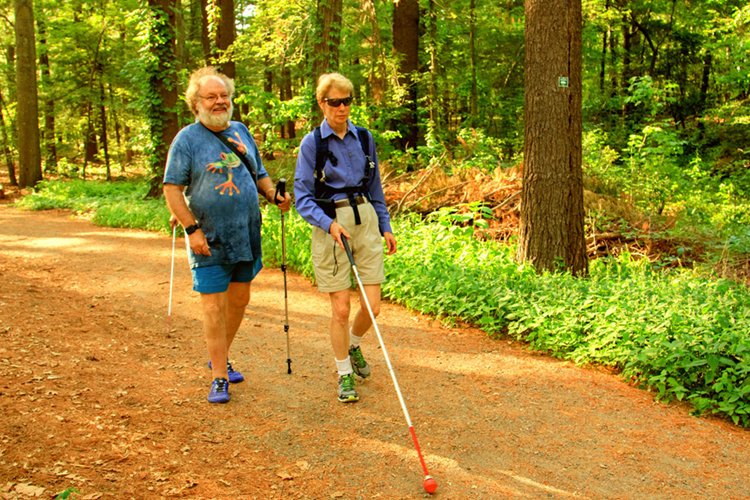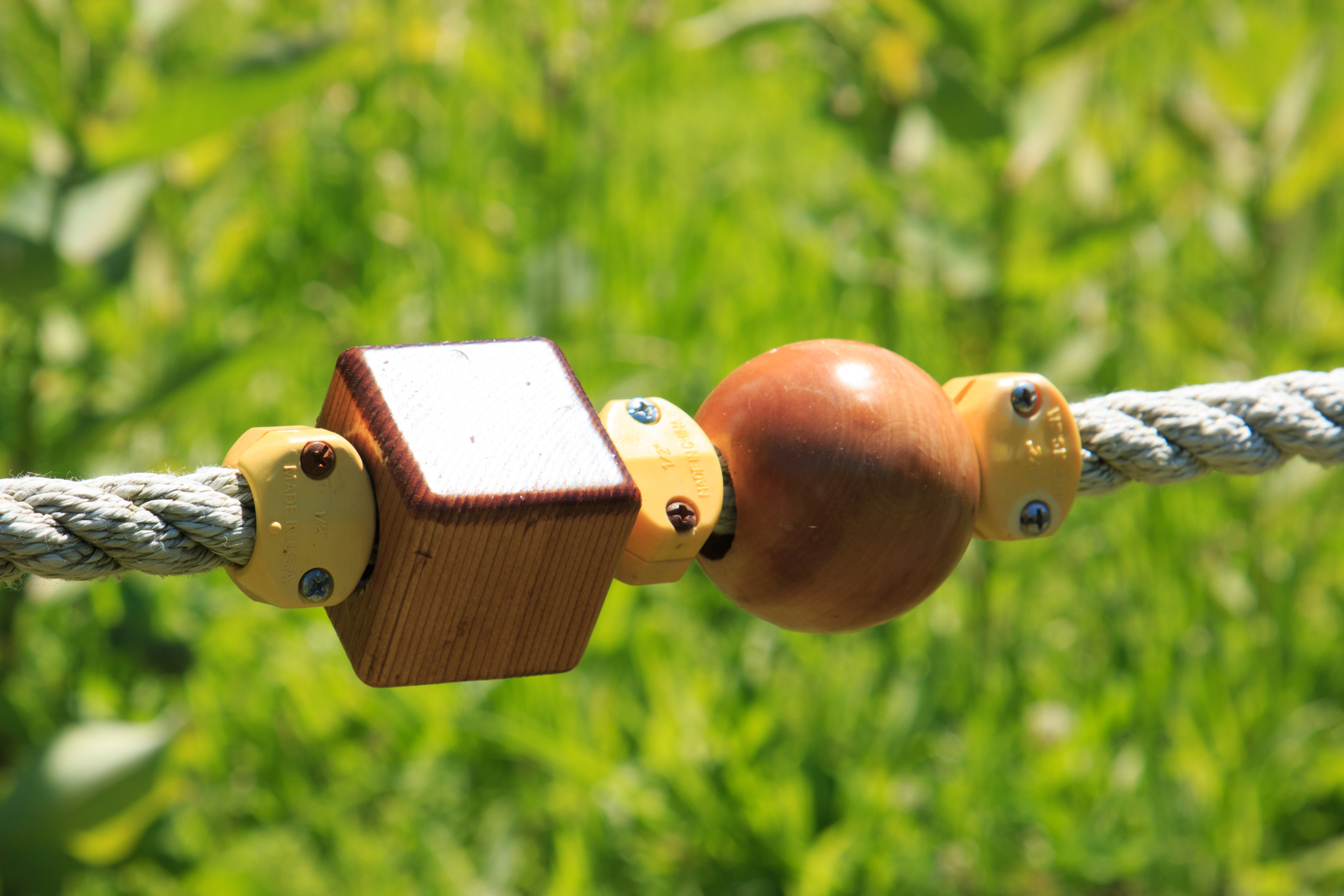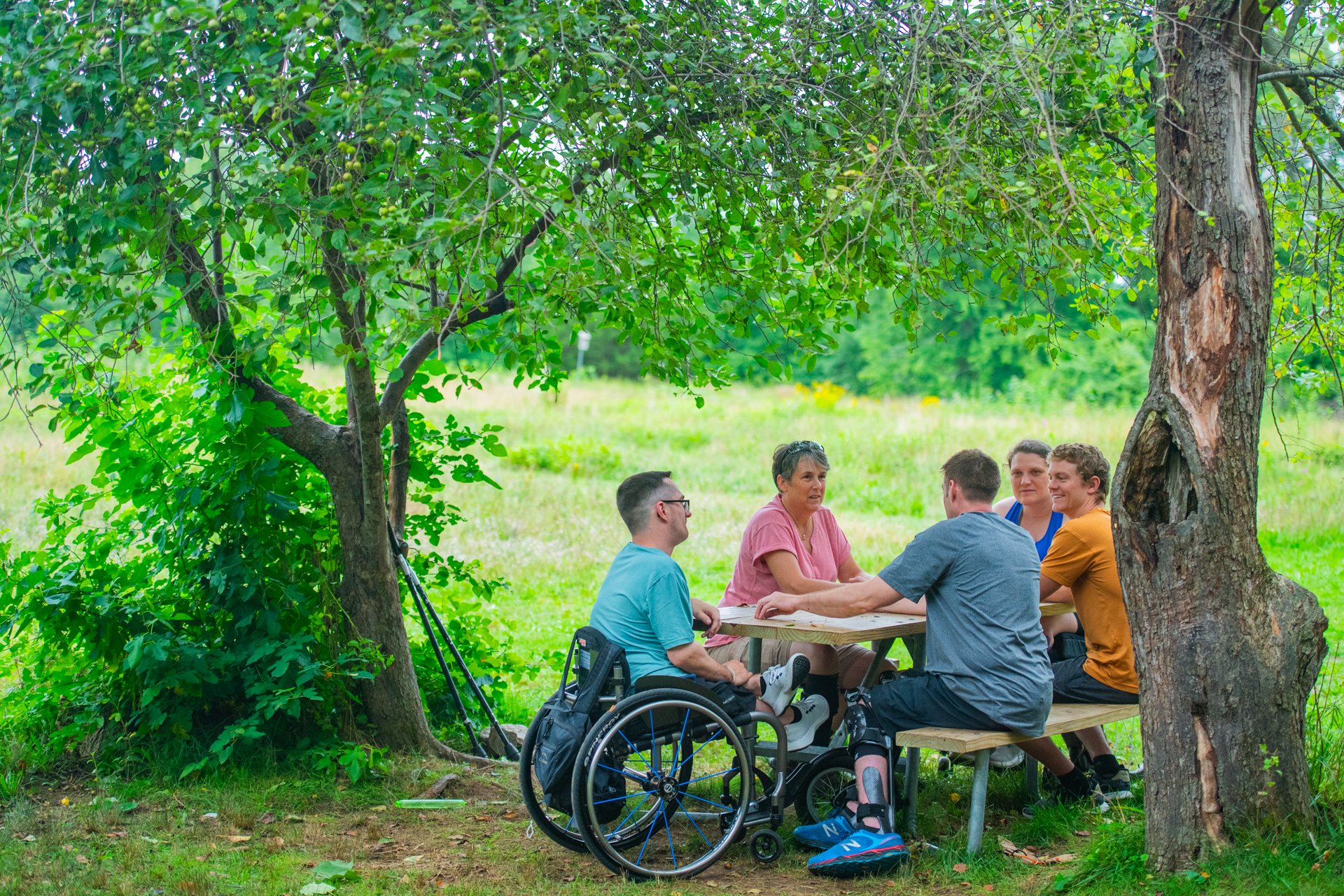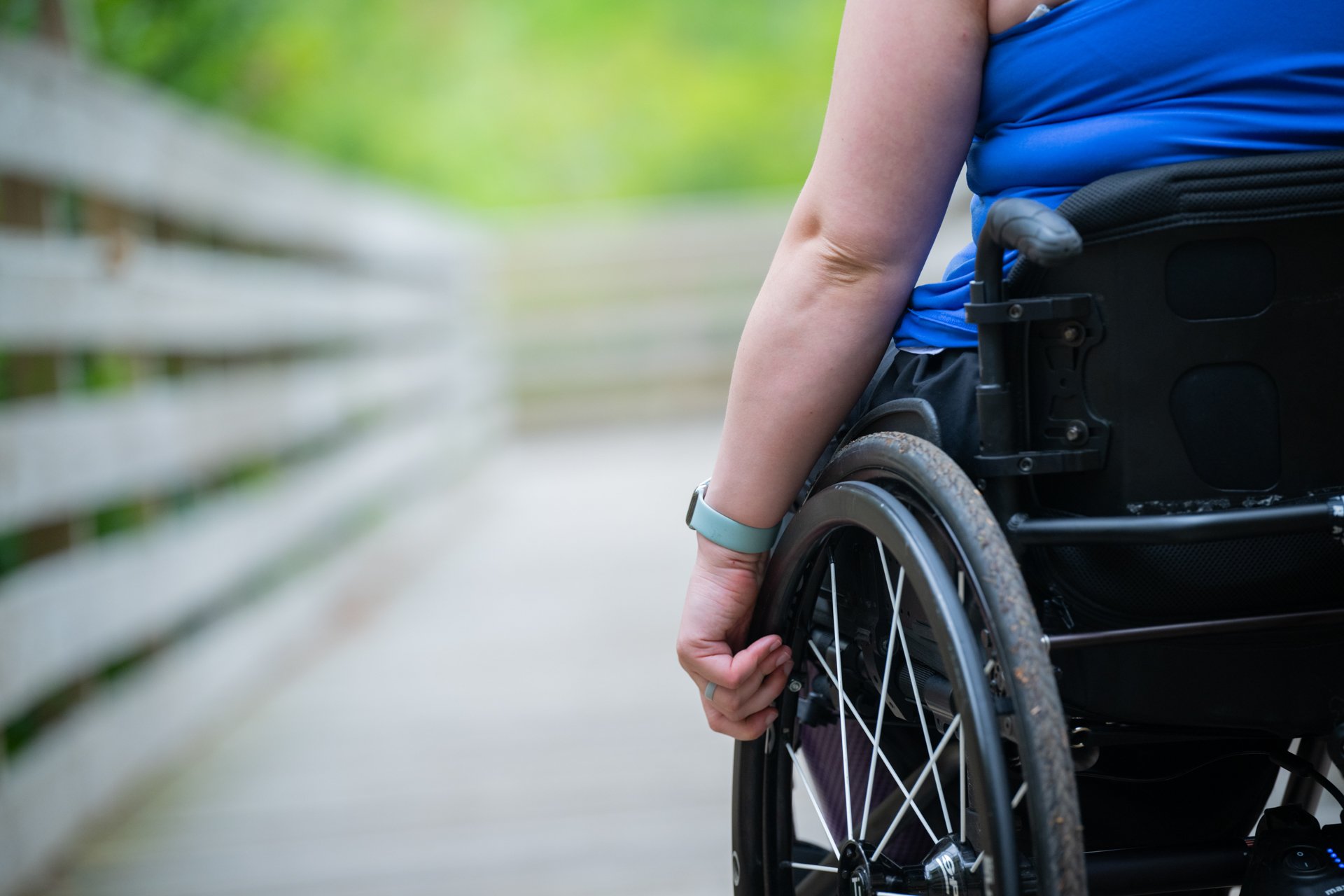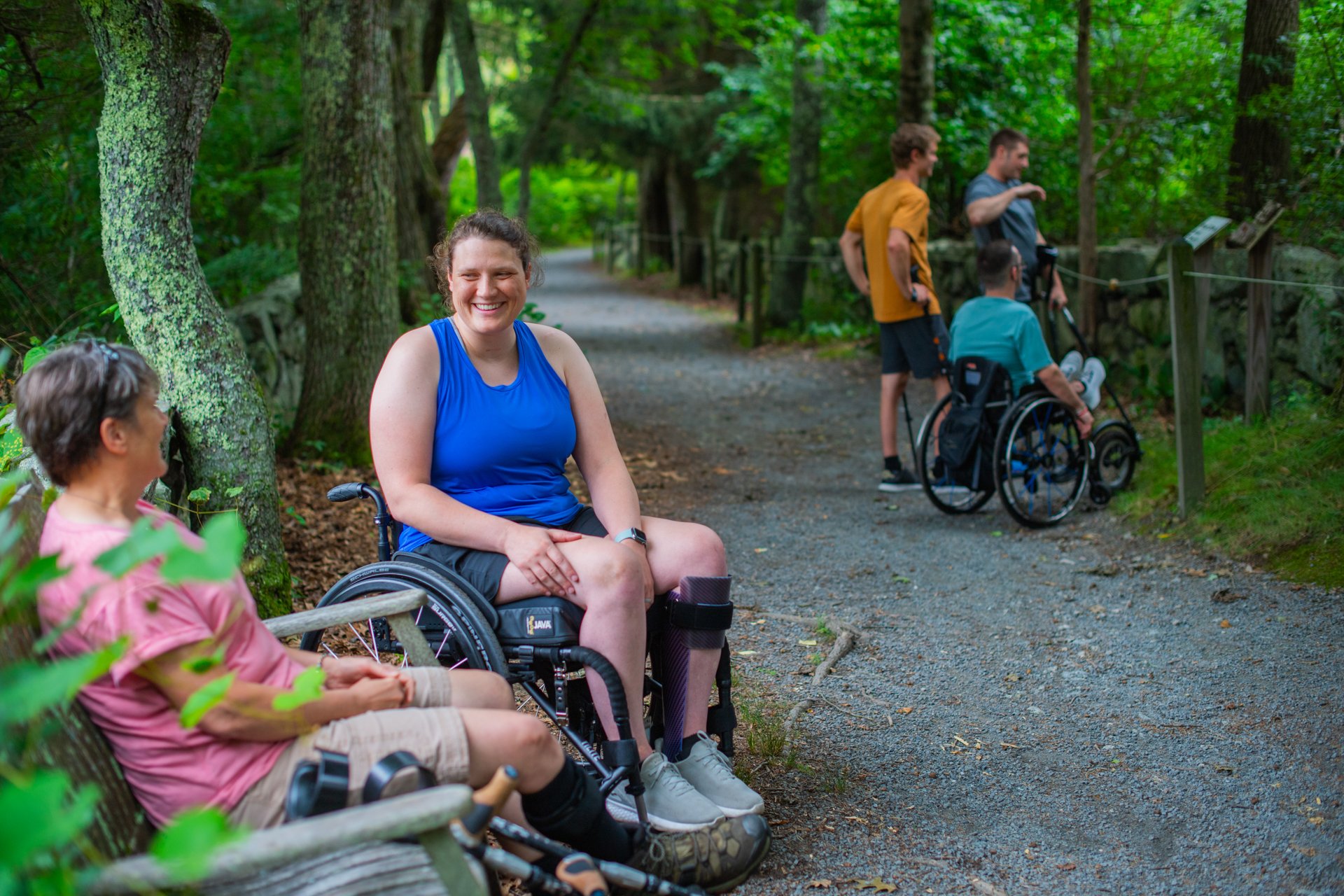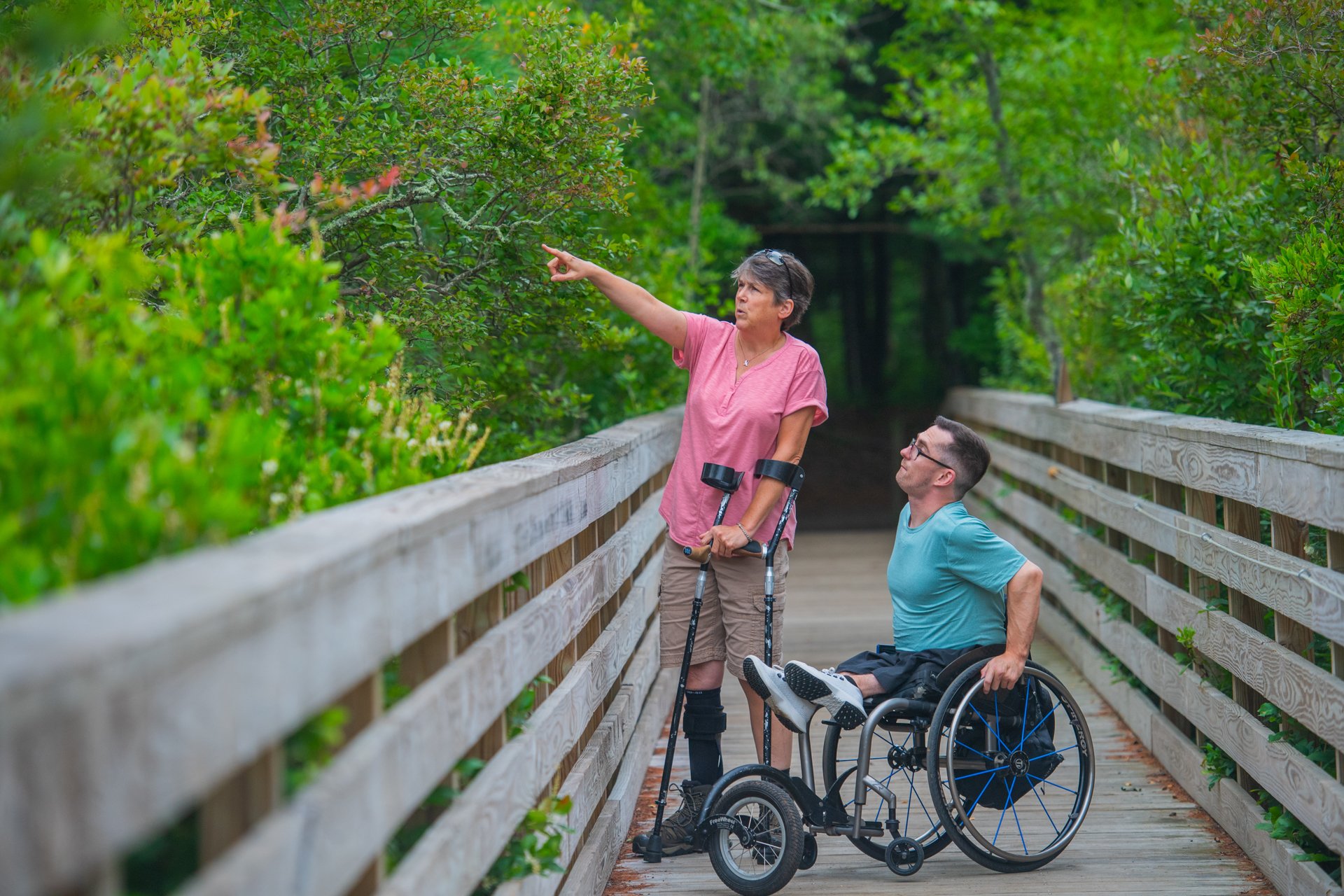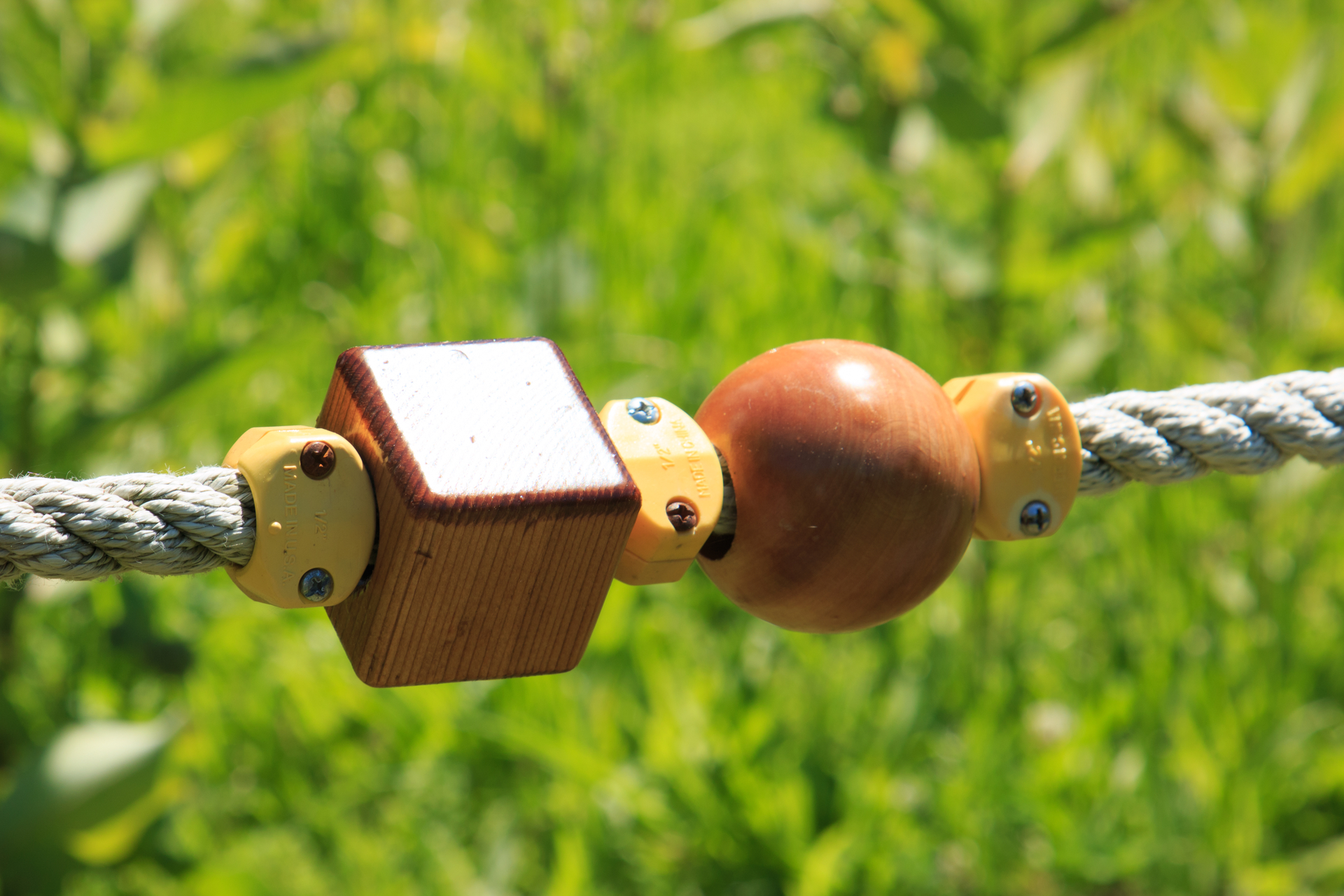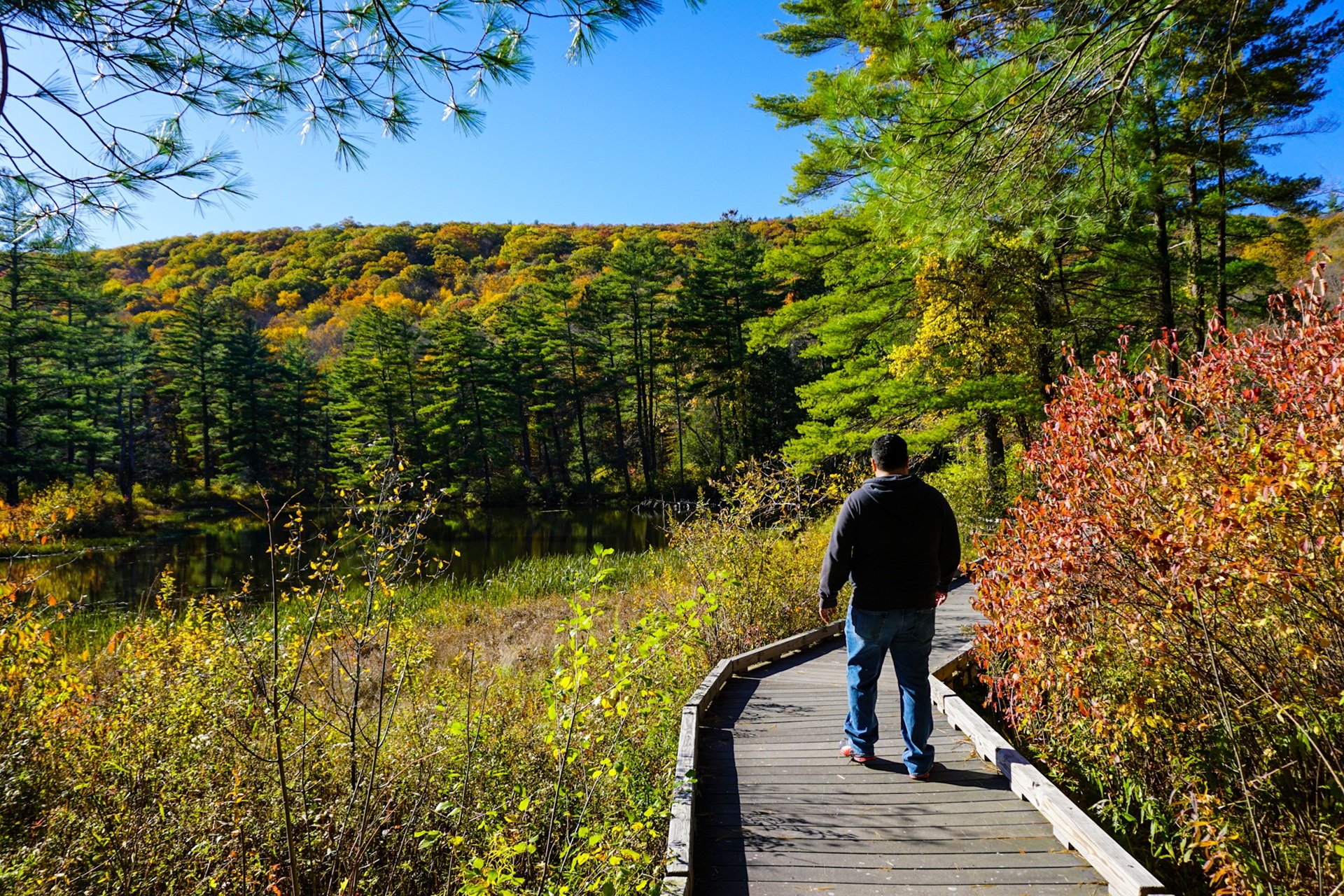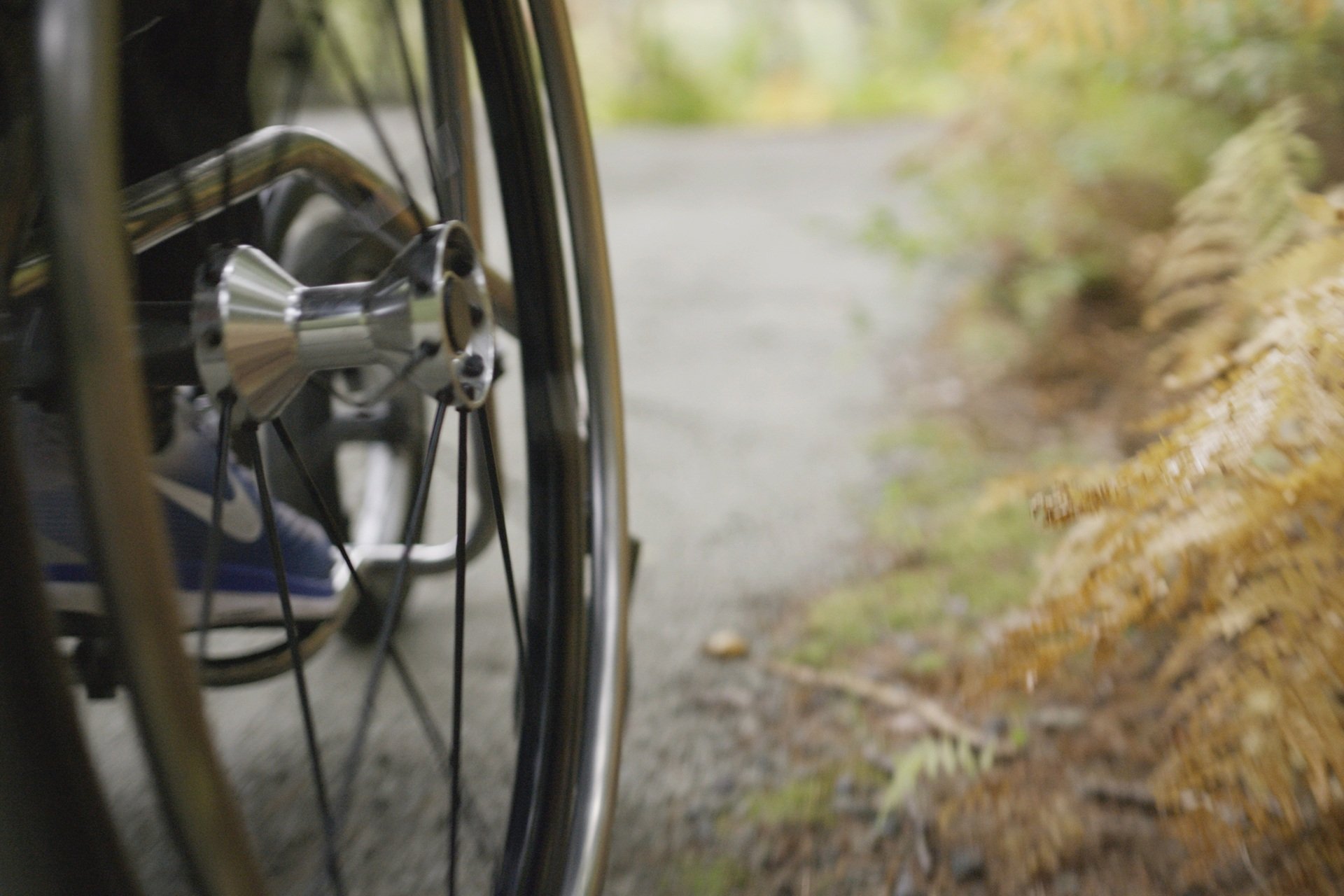Accessibility
MAPLE: Mass Audubon Accessible Programs and Learning Experiences
At Mass Audubon, we believe nature—and the physical, mental, and emotional health benefits that it provides—should be accessible to everyone. To make that possible, we consider every one of our properties, programs, and visitor experiences through the lens of accessibility and, whenever possible, with a focus on universal design.
How We're Centering Accessibility in Our Work
- Universally designed features and experiences at all of our visitable wildlife sanctuaries, with opportunities for meaningful engagement for people with a wide range of abilities and disabilities
- Adaptive activities, programs, and equipment that enable everyone to participate meaningfully in their own way
- Inclusive customer service, so visitors feel welcome and supported whenever they interact with Mass Audubon staff
- Partnerships and collaborations with community resources, accessibility consultants, universal design experts, accessibility-focused vendors, and supportive funders
Find an Accessible Trail
Mass Audubon has wheelchair accessible trails known as All Persons Trails at wildlife sanctuaries across the state.
Find a sanctuary
All Persons Trails
Mass Audubon has developed and installed universally accessible All Persons Trails at wildlife sanctuaries across the state, and there are more on the way. All Persons Trails are typically .5-.75 miles long with wide, even paths of pavement, crushed gravel, or boardwalk. Frequent seating opportunities provide a space to rest and take in your surroundings.
All Persons Trails include universally accessible interpretive features. You can expect handrails, braille and tactile features, audio tour stops, wildlife viewing boardwalks and platforms, and multi-use seating.
At select sanctuaries, All Persons Trails are equipped with a unique post-and-rope navigational guiding system; round beads on the rope indicate an interpretive stop, square beads indicate there is seating nearby. These guiding systems are designed to provide visitors with vision impairments an opportunity to independently experience segments of the trails.
Build an All Persons Trail in Your Community
Interested in creating your own All Persons Trail? We've created an open-source manual of guidelines and best practices for developing and operating universally designed interpreted trail experiences.
Learn About Our All Persons Trails
When I walk by myself on one of Mass Audubon's All Persons trails, I hear more, feel more, and take in more with all of my senses. I go at my own speed, stopping when I want to, standing quietly for as long as I choose, and taking in the beauty of nature in my own unique way.
—Jerry Berrier, Perkins School for the Blind
Accessibility at our Wildlife Sanctuaries
All of our nature centers have been renovated to include ADA-compliant parking, entrances, restrooms, admissions areas, educational activity spaces, exhibits, and galleries. In addition, we offer a variety of mobility supports and adaptive equipment so that everyone can enjoy the beauty of nature in their own way.
Mobility Support
Visitors are always welcome to use their own mobility devices at our wildlife sanctuaries. Mobility devices are also available for use at many nature centers, including Freedom Chairs, 100Laps Navigators, Beach Wheelchairs, and seat canes.
Thanks to a grant from the Christopher & Dana Reeve Foundation, every Mass Audubon wildlife sanctuary with an All Persons Trail has an all-terrain wheelchair (Freedom Chair) or walker (Rollator). Please contact the wildlife sanctuary ahead of your visit to confirm availability.
We issue day permits for visitors to bring electric or electronic power-driven mobility devices to use on our trails, with conditions on size, speed, weight, and other safety measures.
Assistive & Adaptive Equipment
Visitors can also take advantage of free adaptive devices at many nature centers, including hands-free binoculars, large-print field guides, and more. Ask a visitor services representative at your local wildlife sanctuary for options and availability.
Free Admission for One-on-One Aides and Caregivers
One-on-one aides and caregivers who provide personalized support to an individual with disabilities are admitted to Mass Audubon wildlife sanctuaries and programming free of charge when working in that capacity. For more information about one-on-one aides and camp programs, please visit Mass Audubon Camp Goals, Inclusion, and Expectations.
Service Animal Policy
Service animals, including those for emotional comfort and support, are welcome at Mass Audubon*. However, resident wildlife, living freely on the sanctuary or residing in display enclosures, and resident livestock used for farming or ecological management, can perceive even well-trained service animals as predators. For the safety and comfort of wildlife and livestock, we ask service-animal handlers to please:
- Keep service animals restrained and under control at all times and be aware of the potential risk to our animals on exhibit by their presence.
- Contact us before visiting for the first time for more site-specific information and to discuss how best to accommodate your needs along with the site’s wildlife and livestock.
* At sanctuaries with horses (Drumlin Farm), we cannot allow miniature horses to accompany service animal handlers due to the potential health risk to both the miniature horse and to our animals.
Inclusive Programming
Our staff are trained in connecting people of all abilities to the outdoors so everyone can enjoy our wildlife sanctuaries in safe, accessible, and rewarding ways. For any of the programs below, please contact your local wildlife sanctuary to learn more or get involved.
Vocational-Transitional Internships
As teens and young adults with intellectual or learning disabilities transition into the next part of their lives and careers, they can get hands-on life experience working with Mass Audubon staff mentors. Work responsibilities can range from property maintenance, visitor services, education, and animal care at Mass Audubon wildlife sanctuaries.
Inclusive Volunteer Programs
Seven Hill Foundation, Work Inc., and other partners help bring adults with disabilities to volunteer at our wildlife sanctuaries. Volunteers can help keep the sites in tip-top shape by assisting in gardens, doing property maintenance, and keeping our accessible trails and paths clean and safe. We also welcome individual community members of all abilities to volunteer and become valued members of our sanctuary communities.
Sensory Friendly Days
For people on the autism spectrum or with other sensory-sensitive needs, some environments can be overwhelming. During Sensory Friendly Days, wildlife sanctuaries are closed to the general public or are expected to be relatively quiet, providing an ideal backdrop for sensory friendly activities for kids with autism and other sensory needs.
Upcoming Accessible Programs
See AllCheck back often for more accessible and sensory-friendly programs!
Fish Feeding Fun and Story Time
-
Wellfleet Bay Wildlife Sanctuary, South Wellfleet
-
Saturday, February 28
11:30am-12:30pm
Adults & Families - 2 - 17
Build a Nest Box for Cavity-Nesting Birds
-
Pleasant Valley Wildlife Sanctuary, Lenox
-
Saturday, February 28
1:00-3:00pm
Adults
Nature Play Group & Story Time
-
Wellfleet Bay Wildlife Sanctuary, South Wellfleet
-
Wednesday, March 4
10:00-11:30am
Families - children 2 - 17
Partners in Access to Nature
Our efforts to foster universally accessible wildlife sanctuaries are the result of working with knowledgeable partners and generous supporters.
The Massachusetts Cultural Council’s (MCC) UP Inclusive Design Initiative connects us to a network of other local cultural organizations to focus on continually improving accessibility and inclusion at our nature centers, in our programs, and through our visitor services.
The Alvarium Foundation has helped our organization continually build staff capacity for accessibility, adaptive environmental education, and inclusive customer service. Thanks to Alvarium's support, we have also developed collaborative partnerships with dozens of community organizations supporting individuals with disabilities.
The Institute of Museum and Library Services (IMLS) funded our initial accessible trails projects. With their support, we’ve been able to update our trail systems and share our learnings with other organizations.
The Tower Foundation funded our vocational transitional internships, connecting teens and young adults with intellectual and learning disabilities to the outdoors through the aid of Mass Audubon mentors.
Sensory Friendly Days are supported in part by grants from the Lincoln, Sudbury, Belmont, Arlington, Natick, Sherborn, Framingham, Boston, Topsfield, Norfolk, Wrentham, Plainville, Sharon, Norwood, Walpole, Canton, Milton, Plymouth, Kingston, Attleboro, North Attleboro, Marshfield, Duxbury, Westport, Dartmouth, Millbury, West Boylston, Fitchburg, and Wellfleet Cultural Councils, local agencies which are supported by the Mass Cultural Council, a state agency.
Latest News
See MoreHelp Bring a New All Persons Trail to Felix Neck
Keep ReadingAll Persons Trail Opening Celebration at Pleasant Valley
Event Date: Friday, October 17
Keep ReadingNew All Persons Trail Planned at Felix Neck
Keep ReadingStay Connected
Don't miss a beat on all the ways you can get outdoors, celebrate nature, and get involved.



